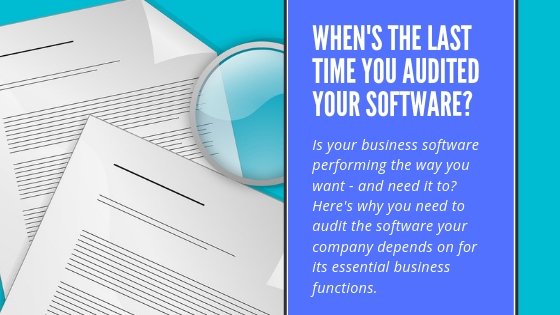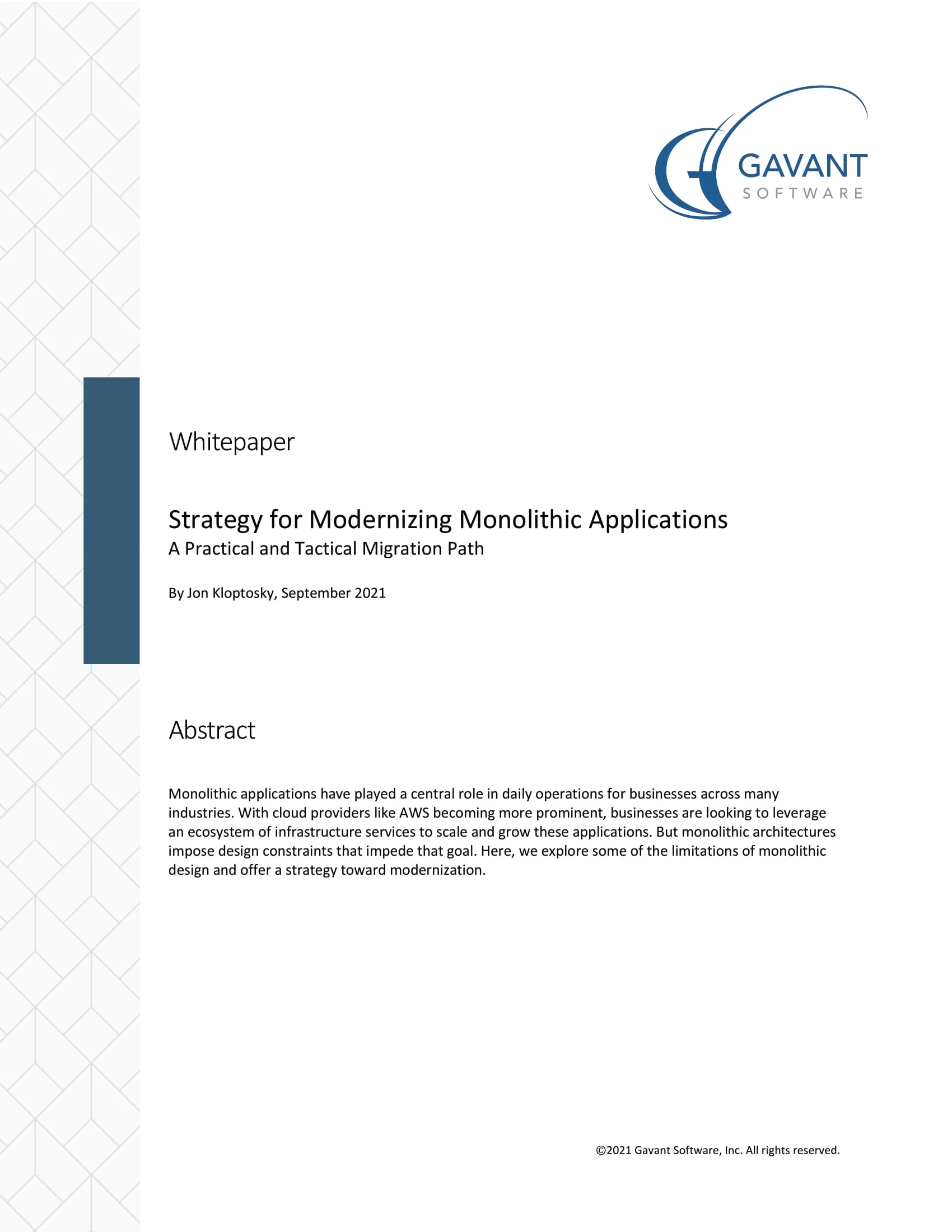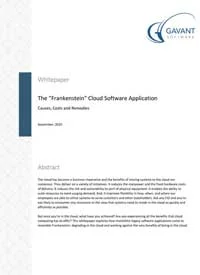
Legacy Software Modernization: Why You Need To Audit Your Existing Software
Effective, efficient software that’s 100% fit for purpose is a must for modern businesses. Without it, you stand to lose your competitive edge in your marketplace and maybe even some of your talent. That’s because your employees can get frustrated using business systems that are not intuitive to their roles, which can lead to dissatisfaction.
So, is your business software performing the way you need it to? Apart from sporadic user feedback, would you even know? Chances are, you don’t. Which is where a business software audit can help.
What is a software audit and why is it performed?
In short, a business software audit – also referred to as an information systems audit – is a check that’s designed to assess whether the software your business uses is:
- Effective
- Efficient
- Intuitive
- Secure
- Future proof
- Fit for purpose
If you are not sure if your custom business software is helping or hampering your organization, a business software audit can provide you with the information you need to make an informed decision on whether it’s time to modernize or replace your system(s).
For example, if you are still using a customized legacy system, despite your business processes and needs having changed over the years, there’s a good chance your business users will have come up with workarounds because the software they use no longer fulfills its main purpose. Obviously, this isn’t conducive to them being productive, efficient, or motivated.
If your business software audit reveals that the legacy systems you are running are no longer fit for purpose, or are hindering your business in other ways, you should probably upgrade or modernize them.
Fortunately, a system and software modernization strategy can enable you to continue using software that you’ve invested in, without all the legacy pitfalls.
[Related reading: The Importance of Modernizing Legacy Systems]
Benefits of performing a business software audit
So now you know why you need to audit your business software, the question that remains is what do you stand to gain from the whole process?
Here are some of the benefits of performing a business software audit:
1. Helps identify if you can potentially save money
You could be hemorrhaging cash and opportunity by running and maintaining a piece of legacy software that’s simply no longer in its prime. It is quite often the case that a business continues to run a piece of customized legacy software despite the high cost, since it is so essential.
A business software audit can help identify such situations, allowing you to address the software’s removal / replacement / upgrade, which can save you money in the long-term.
2. Uncovers efficiency problems
Legacy software in general isn’t as efficient as modernized equivalents, purely due to the age, programming techniques and the technologies that were available when it was created.
By conducting a business software audit, you can uncover efficiency problems with your existing software solutions and look to overcome them going forward.
Inefficient software isn’t just a headache, it also frustrates your staff and directly impacts your productivity.
3. Reveals security vulnerabilities
Off-the-shelf legacy software systems are notorious for housing security vulnerabilities, which makes them (and your entire business) liable to falling victim to cyber-criminals.
The problem with legacy systems is that they are often no longer supported by those who created them, and that means they do not receive security patches and updates to stabilize them and plug any vulnerabilities.
A business software audit can help identify such systems and their vulnerabilities, enabling you to proactively make changes to mitigate risk.
4. Highlights expensive maintenance activities
A lot of the time, customized legacy systems are a pain to support and maintain. Whether it’s because they are unstable due to a lack of updates, or the knowledge needed to support them has been lost due to staff turnover, legacy systems often present support and maintenance problems.
With a business software audit, you can quantify the source of grief in financial and other terms. You can then use this information to make an informed decision about what you do with said software.
5. Helps future-proof your business
As we’ve already mentioned earlier in this post, your employees might be using workarounds to help them perform their duties, because the software they have doesn’t function as they need it to. Situations like this are only ever going to deteriorate further as time passes.
A business software audit will suggest areas where systems need to be removed / replaced / modernized, allowing you to better future-proof your systems and ensure your business is in the best possible position going forward.
Don’t keep struggling with software that isn’t doing your business or its employees justice. Follow these links to find out more about Gavant’s business software audit and system modernization offerings.




 Strategy for Modernizing Monolithic Applications
Strategy for Modernizing Monolithic Applications
 The "Frankenstein" Cloud Software Application
The "Frankenstein" Cloud Software Application
 A Guide to Custom Software Development
A Guide to Custom Software Development